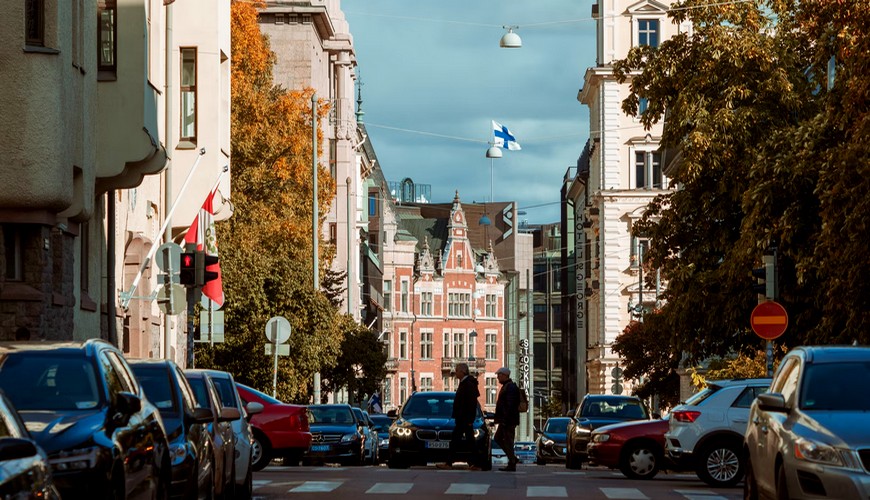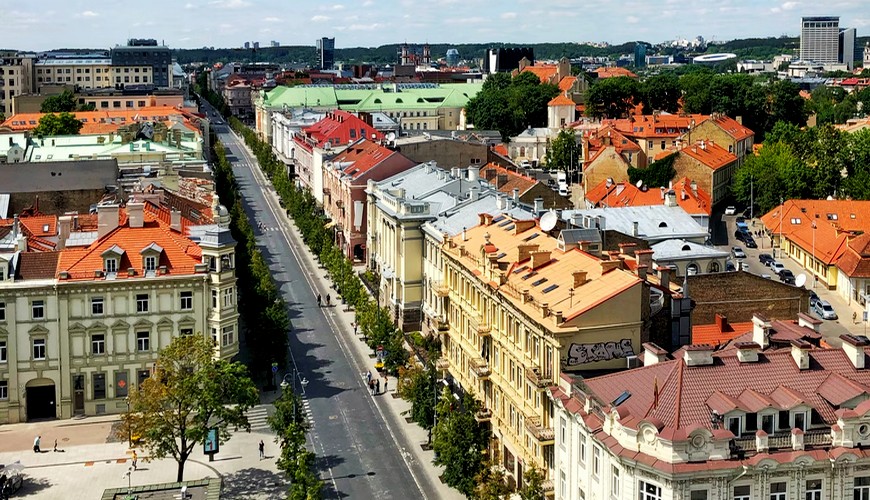
version


The Global Entrepreneurship Monitor (GEM) organization has been studying the conditions for doing business in different countries since 1999.
GEM has identified several factors that are important for entrepreneurs: the availability of sufficient funds to open startups, government support for business, the amount of taxes, the scale of bureaucracy, business education, ease of entry into the market, the availability of infrastructure (both conventional and specific), etc. On their basis, the company calculates a composite index of the national entrepreneurial context of each country (NECI).
The experts have divided all countries into three categories depending on the size of GDP per capita:
GEM has interviewed more than 2,000 experts from 50 countries. Each country was represented by at least 36 respondents.
The general conclusions
Last year, as in 2020, the pandemic significantly affected startups.
While household incomes have declined (which often prevents entrepreneurs from starting and continuing a business), people's interest in starting their own company has never been higher.
At the same time, in 18 of the 47 countries studied, more than 50% of potential startup owners said that starting a business has become more difficult.
In most countries, men are more likely to start a new business than women.
Entrepreneurs are usually relatively young people who have a higher education.
As expected, the richest countries showed the highest results. It partialy explains why the UAE came first.
However, it's not just about money: in the NECI composite index, the country showed improvements in 11 out of 13 categories. In total, the Emirates scored 6.8 points, while the United States scored only 5.3.
The Netherlands and Finland were in second and third places, respectively. This is followed by Saudi Arabia, Lithuania, South Korea, Norway, Qatar and Switzerland. Spain closes the top ten.
Introducing the winners.

In 2016, the UAE launched a new strategy, focusing on entrepreneurship for diversifying the economy, which previously received the lion's share of income from oil production. Since that time, the country has reached a steadily higher level of business activity. It is a rapid recovery of business conditions after the lifting of the restriction related to the pandemic.
In 2021, 62.3% of Emirates' residents said their household income had fallen due to the pandemic – the highest percentage among Tier A economies. Nevertheless, entrepreneurs remain confident in the face of these challenges. Among aspiring entrepreneurs, 59.9% say they see new opportunities that have emerged after the pandemic, and 75.9% plan to use digital technologies more to develop their business in the next six months.
Perhaps because of this approach, the United Arab Emirates also has the highest rate of entrepreneurs planning to hire six or more additional employees in the next five years among the A-level economies. They will need both this confidence and investment to meet the ambitious goals set by the state.
At the end of 2021, the Minister of Entrepreneurship of the Emirates announced a new policy to create 20 new startups by 2031, which should earn more than $1 billion each.

In 2021, there was a noticeable growth in new company launches in the Netherlands, partly due to a higher assessment of the country's capabilities, as the economy recovered faster than expected after lockdowns.
Among the Dutch population, 69.9% saw good opportunities to start a business where they lived. It is a significant increase compared to 2020 when only 48.8% of respondents agreed with this.
In addition, 17.6% of respondents from the Netherlands intend to start a business within the next three years. A noticeable increase compared to 13% in 2020 when their decisions were seriously affected by the pandemic. At the same time, the entrepreneurial sentiment index among the population rose to 14.2% in 2021 – this is the maximum since the Netherlands began participating in the study.
These results show that a significant proportion of startup entrepreneurs in the Netherlands have appreciated and adopted new measures, as well as positive opportunities that have appeared in the country, despite some obvious problems caused by Covid-19.
The period from June 2020 to June 2021 was unique in the history of the Netherlands, as the state developed large-scale support programs for the self-employed and enterprises, as a result of which the rates of business closures and bankruptcies decreased. This will quickly restore economic growth.

Finland had the highest level of respondents out of all Category A countries who reported that someone in their environment had launched their business in the last two years. Often such an environment inspires people to start their own businesses, but this did not happen with the Finns.
Finland has also achieved high results in the field of business education. It is one of the priorities of the Finnish government. However, despite the high level of knowledge, Finns do not seek to try their hand at business practice. Perhaps many people see the risks faced by their familiar entrepreneurs and do not want to experience them for themselves.
One of the negative consequences of this attitude seems to have been a lower level of women's participation in starting and running a business for a long time.
At the same time, high scores on the conditions of the Finnish economy correspond to an environment that allows new enterprises to grow and develop, even if there are relatively few people willing to start their own businesses. On both indicators related to financing, Finland has the highest scores among the A-level economies.

Unlike most countries that participated in the study, Saudi Arabia saw growth in entrepreneurial activity in 2020 and 2021, despite the pandemic. It seems unexpected, especially since the state did not promote huge incentive packages at that time.
Partly due to tax increases, the recent rise in oil prices, and other factors, domestic consumer spending and the Saudi economy grew steadily during this period. Due to this, new opportunities arose, especially for entrepreneurs focused on the domestic market.
In 2021, the country showed a high level of entrepreneurial sentiment, which is likely to accelerate growth in the near future. For example, more than 90% of Saudis see business opportunities and believe that they have the skills, knowledge, and experience to start their own business; they also think that it will be easy to do it.
Nevertheless, if Saudi Arabia wants to implement the country's Sustainable Entrepreneurship Program for the period up to 2030, additional efforts will be needed in some areas. Due to the strong rebound in consumer spending in 2020 and 2021, most Saudi entrepreneurs have focused their activity on the domestic market. As a result, the country ranks second from the end in terms of the percentage of new business owners expecting 25% or more of their income from outside the country.

Lithuania ranked first or one of the highest among the B-level economies, which reflects the optimal conditions for efficient entrepreneurship.
The country has a favorable investment climate, and this is shown by the recent surge of new technological enterprises, especially startups in the field of financial technologies and blockchain.
The state has made it a clear priority to encourage business activity. The most notable step was the creation of the Entrepreneurship Assistance Fund in 2009. Although its size may seem small compared to entrepreneurial programs in large economies, in a country with a population of less than 3 million, it has had a noticeable impact on the business climate.
Given the government's interest in promoting entrepreneurship, it is not surprising that education and infrastructure have also received high marks from experts. In particular, the 4.7 grade in school business education is significantly higher than in any other B-level economy. Physical infrastructure received 8.5 points – the best result among Level B countries and the second overall.
The only low rating that Lithuania received was for the ease of entering the market. It may be difficult to improve this indicator, given the small size of the domestic market.
Finally, the research conditions received 5.8 points, ranking first among B-level economies and second overall. This is a special reason for the pride of the Lithuanian government and business. In 2019, the World Economic Forum named Lithuania the best place for R&D (research and development) in Central and Eastern Europe.

The level of entrepreneurial activity in Korea remained remarkably stable in 2020-2021, despite the problems associated with Covid-19. The country successfully coped with the pandemic, which allowed businesses to quickly recover from the accompanying restrictions.
As of the end of 2021, the economy has already recovered in terms of GDP growth. Only 1.5% of households said their income had "declined significantly" as a result of the pandemic. This is the lowest indicator among the A-level economies that participated in the study. Due to this, Korean entrepreneurs maintained their activities almost at the same level. The number of both beginning and continuing entrepreneurs has grown in the country. This is a unique case during this period.
At the same time, only a very small percentage of entrepreneurs said that they saw new opportunities in connection with the pandemic. The reason is that this disaster has only affected the Korean economy to a small extent.
The weak point is commercial and professional infrastructure, which received a score of 5.0 (this is the second place from the end among the A–level economies). The indicator reflects the lack of broad and inexpensive access to professional services, primarily legal and financial, necessary for the new business development.

Norway is a country with a very high income and a small population, which is now recovering from Covid–19. In this regard, one of the main problems of Norwegian entrepreneurs may be too rapid economic growth. Both GDP and the demand for employees have increased and are likely to continue to grow in 2022. As a result, there is strong competition among Norwegians for the talents and material resources necessary for business development. Perhaps because of this competition, the index of new businesses in Norway has dropped to 3.1% in 2021, compared with 7.6% in 2020. The number of operating companies has also decreased, although not so much.
Difficulties in recruiting qualified personnel are clearly visible in the hiring plans among startup entrepreneurs. Their share was the lowest for all level A economies, because salaries in Norway are so high that entrepreneurs must have enough resources to hire at least one employee. And in the near future, it will become even more difficult, as wages will grow even faster.
In order to overcome the high financial bar for opening and running a new business, the Norwegian authorities will need a number of measures. At a minimum, we need tax incentives that reduce the cost of hiring new innovative companies.
In addition, it is necessary to focus on expanding the export of business. Currently, the country has the lowest indicator among Tier A economies of the number of entrepreneurs expecting 25% or more of their income from outside the country. For a country with a small population, this is one of the ways to help entrepreneurs. However, it will not be easy to find markets where they are willing to pay for goods and services as much as they pay inexpensive Norway.

During the period of its participation in the study, Qatar has consistently demonstrated a high level of entrepreneurial confidence both among the general population and among entrepreneurs themselves.
The trend went on in 2021. For example, 73.8% of Qatari residents saw good opportunities to start a business where they lived, and 70.9% also said they had the skills, knowledge, and experience to start a business. It is not surprising that Qatar led all A-level countries in the prospects of starting a business over the next three years (50.4%).
Nevertheless, the business startup index in Qatar has slightly decreased. The reasons are probably the significant economic problems that the country has faced due to Covid-19. Even in 2021, when GDP recovered, 53.5% of the Qatari population said their incomes had declined due to the pandemic.
The impact of the pandemic has also affected entrepreneurs. The country had the highest rate of business closures due to Covid-19 among all Tier A economies. In general, the percentage of people leaving the business in 2021 has almost equaled the percentage opening a new business, which means a significant decline in entrepreneurial activity.
The authorities could encourage the emergence of startups providing business services to solve this issue. As a rule, they bring more income and can work remotely more easily. Qatar now has a high level of new enterprises focused on consumer services, which, as a rule, are very sensitive to economic fluctuations.
A weak point in the development of Qatar's entrepreneurial climate is problems with access to finance. The authorities can provide tax incentives and other financial incentives for new enterprises, especially in innovative sectors to compete for financing. On the other hand, the state could offer tax incentives or subsidies for financial institutions that lend to entrepreneurs.
Another growth factor may be a major development program in the country – Qatar National Vision 2030, which has a component of entrepreneurship support.

The indicator of entrepreneurial confidence in Switzerland increased in 2021. Among the adult population of the country, 54.7% saw good opportunities to start a business where they lived. This was the highest indicator for this country – twice as much as in 2020. Accordingly, the share of those who believe that it will be easy to start a business in Switzerland has also increased markedly.
While these improvements are encouraging, Switzerland also faces a number of long-term challenges. There was a high level of those who continue doing business in the country before the pandemic, but in 2020 this figure fell by one and a half times and slightly recovered in 2021. Returning to a higher level can be long, but there are several ways to speed it up.
First of all, this is an increase in the influx of new enterprises that will replace those closed in 2020. Judging by the growth in the number of start-up entrepreneurs, this seems to be already happening.
The other way is more long-term, it is connected with the transfer of entrepreneurship skills. Now the majority of businessmen in Switzerland are men, there are almost twice as many of them as women. In this environment, it would be useful for potential entrepreneurs to have mentors with established connections who could guide them in the process of starting and running a business. Another resource is more active entrepreneurship training.

At the beginning of 2021, President Pedro Sanchez unveiled the Spanish National Business Strategy, which aims to make the country a major center of technology startups by 2030.
One of the tasks is to fill the gaps in the startup sector in Spain in terms of representation of both sexes, as well as different regions, diversity of socioeconomic status, and age of business owners. This is certainly important, but startups are only a small part of the whole entrepreneurial picture.
Another task formulated in the strategy is to reduce the investment gap between neighboring France and Germany. The most important component of bridging this gap will be attracting additional capital and making it accessible to entrepreneurs.
The level of new businesses in Spain in 2021 increased slightly compared to 2020. The indicators indicate that entrepreneurial activity is recovering, and the country is a resource for the emergence of new businesses.

The US improved its baseline in 2021. However, many other indicators related to public administration received low ratings. The Federal Government needs to continue developing targeted programs to support entrepreneurship.
The spread of Covid-19 in the United States initially led many economists to compare it to the recession of 2008-2009. However, the country coped with the pandemic more easily. In 2021, the number of new businesses has almost recovered to the pre-pandemic level. The number of business registrations recorded by the U.S. Census Bureau has also increased dramatically during this time, exceeding the pre-pandemic level.
In 2020, only a few entrepreneurs saw new opportunities in the pandemic, but in 2021 their share increased by one and a half times. In addition, 60.8% of respondents plan to use more digital technologies, which indicates a willingness to adjust the strategy and invest in new consumer demands caused by the pandemic.
A characteristic feature of the business of the Covid era is a sharp increase in the number of companies in which one employee (IE) is employed. In 2021, the share of American adults who expect to remain the only employee in their business increased by almost 20% compared to 2020.
This could mean new business opportunities or more flexible working conditions, which have become another characteristic of the pandemic. When developing policies at the federal and state levels, it is worth taking into account these factors – in particular, in terms of access of the self-employed to health insurance, social security, and other benefits.
Source: GEM 2021/2022
Photos: Unsplash (Julien Riedel, Mohsin, Massimo Virgilio, Tapio Haaja, ekrem osmanoglu, Victor Malyushev, NK Lee, Jacek Dylag, Kamal Darwish, Patrick Federi, Alessandro Rigobello), wikimedia (Roberto García)





